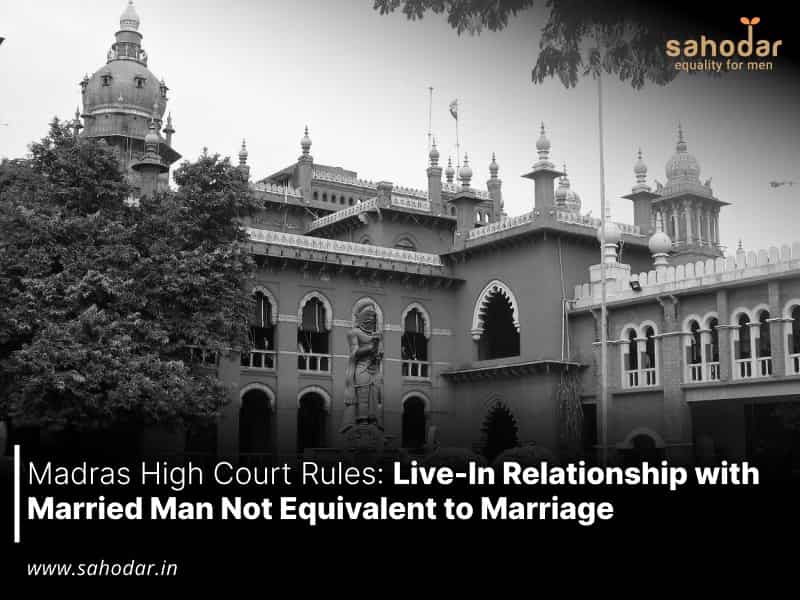The Madras High Court recently ruled that a live-in relationship between a married man and an unmarried woman does not qualify as a relationship “in the nature of marriage,” thereby not granting the parties any marital rights. The court emphasized that, without codified law, a live-in partner cannot claim succession or inheritance rights to the other party’s property.
Justice RMT Teekaa Raman denied relief to a man in a live-in relationship while still married. The court explained that for a relationship to be considered akin to marriage, the couple must present themselves publicly as spouses, cohabit voluntarily, be of legal age to marry, and be otherwise eligible to marry. Since the man was still legally married during the live-in relationship, it could not be deemed a relationship in the nature of marriage.
“Where a man and a woman are proved to have lived together as husband and wife, the law presumes that they are living together in consequence of a valid marriage will not apply and hence, the relationship between the appellant and Arulmozhi (now deceased) was not a relationship in the nature of a marriage and the status of the said person is that of a concubine. A “concubine” cannot maintain a relationship in the “nature of marriage” because such a relationship will not have exclusivity and will not be monogamous in character and consequently he cannot enter into relationship in the nature of a marriage,” the court observed.
The court considered an appeal from Jayachandran, who had a live-in relationship with Margarette Arulmozhi while still married to Stella, with whom he had five children. Jayachandran had previously executed a settlement deed in Margarette’s favor, which he unilaterally revoked after Margarette’s death.
The dispute concerned ownership of a property settled in Margarette’s name by Arulmozhi. The trial court ruled that since Jayachandran and Margarette had not converted their relationship into a valid marriage, Margarette’s father, Yesuranthinam, was entitled to the title decree. Consequently, the court directed Jayachandran to surrender possession of the property. Dissatisfied, Jayachandran appealed this decision.
In his appeal, Jayachandran contended that he had divorced Stella through customary means before entering into a relationship with Margarette. He asserted that he executed the settlement deed to ensure Margarette’s security. Jayachandran argued that the trial court overlooked Margarette’s nomination of him as her spouse in her service records, which included pensionary and other benefits.
He further claimed that following Margarette’s death, he should be recognized as her husband, emphasizing that the trial court erred by merely categorizing their relationship as a live-in arrangement.
The court acknowledged that unlike the Hindu Marriage Act, the Indian Divorce Act did not recognize customary divorce practices or caste distinctions. Therefore, without proof of a customary divorce, the court could not accept Jayachandran’s assertion of having divorced Stella.
The court emphasized that under the Indian Christian Marriage Act, monogamy principles applied, confirming the existence of Jayachandran’s first marriage to Stella. Regarding Jayachandran being nominated as Margarette’s beneficiary in service records, the court clarified that such nominations were self-declarations and did not confer legal heir status upon him.
Consequently, the court affirmed that the absence of codified law meant a live-in partner like Jayachandran could not claim succession or inheritance rights. Upholding the trial court’s ruling, the court dismissed Jayachandran’s appeal.

